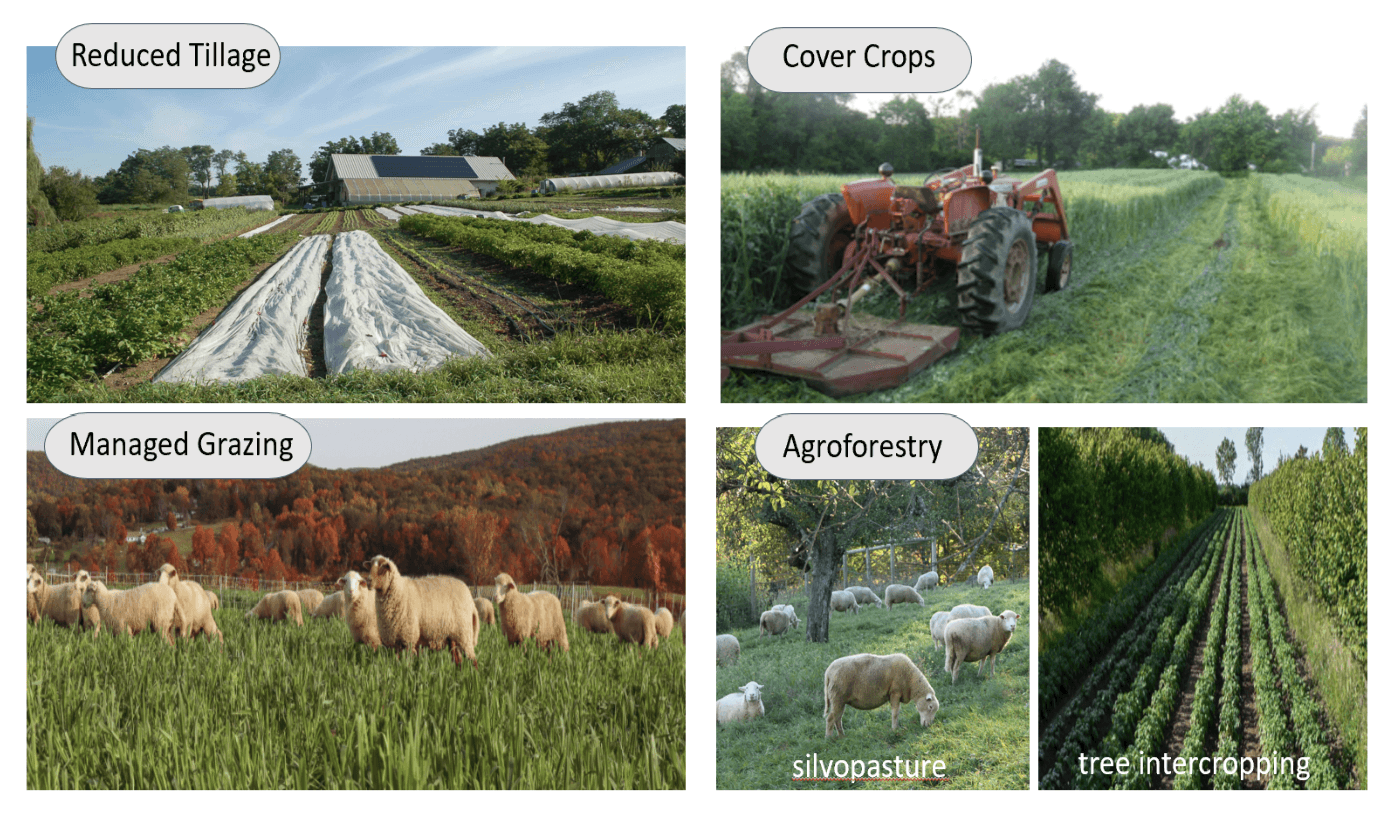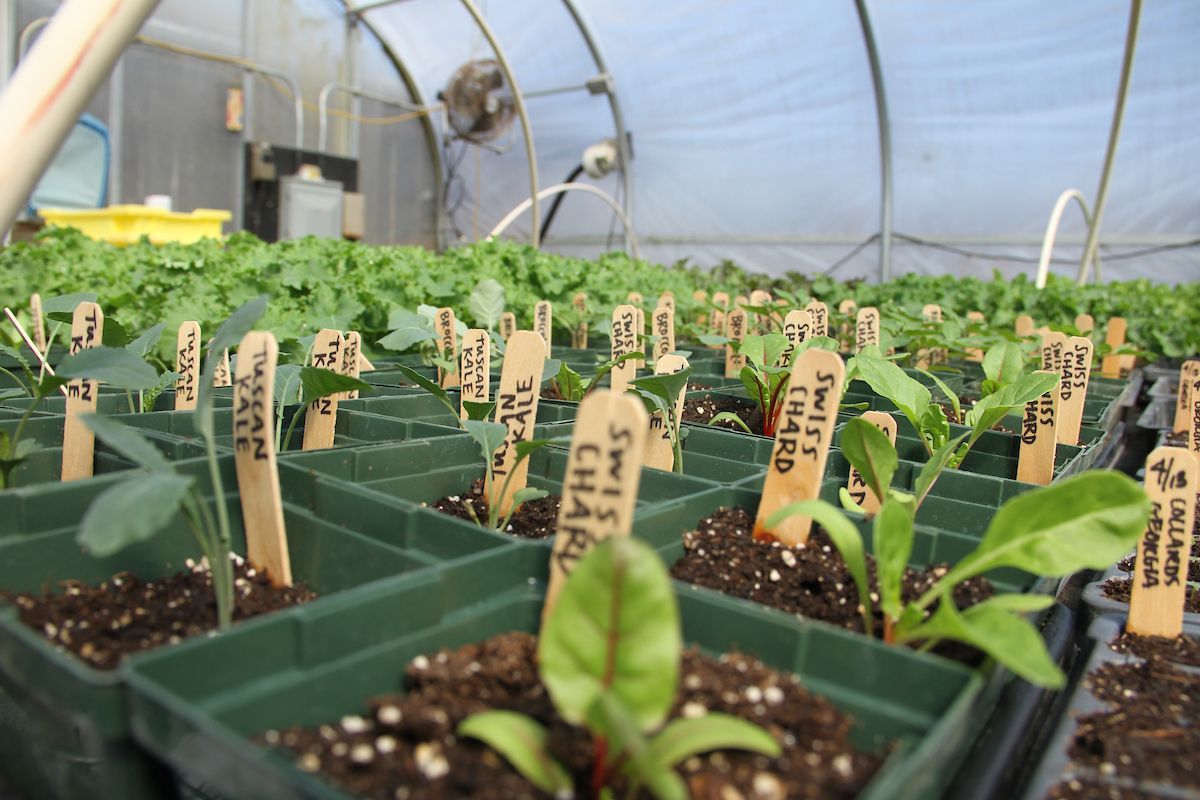
We are delighted to announce that Glynwood, along with an incredible team of national leaders in agriculture, soil science, environmental justice, and climate science, has been selected by the USDA to receive $20 million in funding from the Partnership for Climate-Smart Commodities Program. This ambitious five-year project will help farmers adopt climate-smart practices as well as measure the effects of these practices on the environment, on the farmers who have adopted them, and on regional markets.
The project team, led by The Soil Inventory Project, will work together to support hundreds of America’s farmers and producers managing 120,000+ acres across a diversity of landscapes nationwide. Other project team members include Nature For Justice, Jackson Family Wines, International Wineries for Climate Action members, Corteva Agriscience, Vayda, and the Meridian Institute.
Climate-smart agriculture is based on a toolbox of “triple-win” farming practices that are commonly used by organic, sustainable and regenerative farmers. These “triple-win” practices, for example, minimum tillage, cover crops, intensive grazing and agroforestry, reduce greenhouse gas emissions, increase farm sustainability, and promote climate resilience both on farms and in the communities that they call home. Despite widespread agreement about the many benefits of climate-smart practices, most American farmers have been reluctant to make the switch to these new practices. The primary reasons for this hesitation include a lack of technical assistance to successfully manage making such changes to their farm, plus the increased costs and risks associated with adopting these new practices.
Public and private programs offering technical and financial assistance on climate-smart practices to farmers who are managing large-scale industrial farms have grown swiftly over the last decade. While these programs are welcome and much needed, they do not address the unique needs of small- and mid-scale farmers who are growing a diversity of crops and livestock for local and regional markets. Glynwood has been working to address this gap.
As the project’s Hudson Valley lead, Glynwood will partner with Scenic Hudson, the New York Cider Association, and other regional food and farming organizations to deliver $4 million in direct financial assistance tailored to the needs of farmers managing small- and mid-scale diversified farms in the Hudson Valley. In addition, we will host a climate-smart specialist at the Glynwood Center to provide technical and financial assistance to farmers in the region and support the development of new marketing options for farmers using climate-smart practices.
Glynwood will also work with regional partners to launch a new climate-smart network designed to serve the carbon management needs of Hudson Valley farms and food businesses by providing technical assistance to estimate the carbon footprint of operations; identify practical options for reducing the carbon footprint of farm and food products; explore effective strategies for meeting the growing demand for climate beneficial products; and recommend low-cost strategies to meet the verification and reporting requirements for the sale of carbon credits into voluntary carbon markets.
Image: Some climate-smart agricultural practices used by Hudson Valley farmers include reduced tillage (soil management practices that reduce soil disturbance), cover crops (crops that are not marketed, but are grown to provide crop nutrients or increase soil health), intensive grazing (rotating livestock through pastures), and agroforestry practices like silvopasture (grazing livestock in pastures planted with trees or in orchards) and tree intercropping (growing annual crops between rows of trees). All of these practices, except tree intercropping, are used on the Glynwood Farm in Cold Spring.

